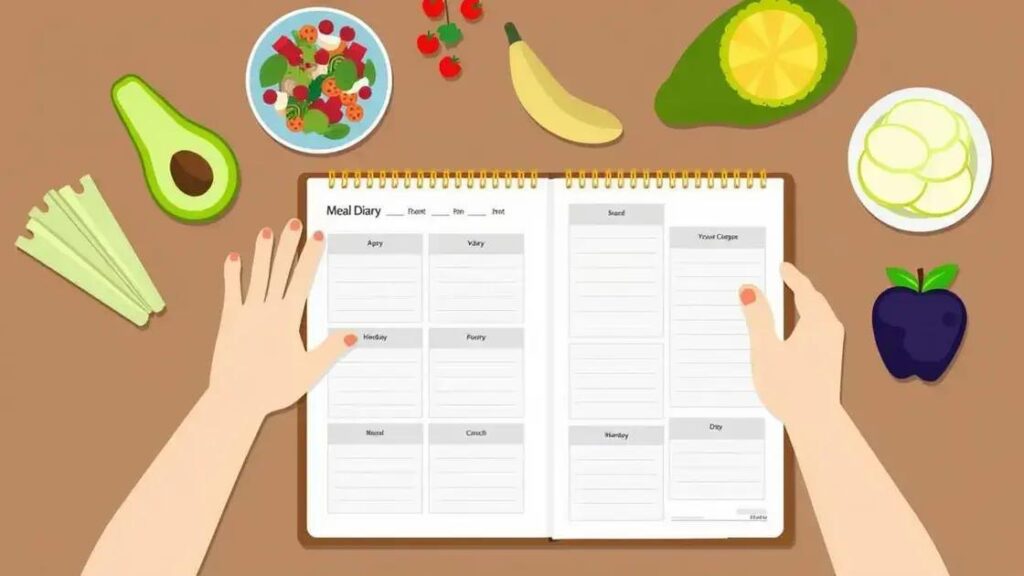To identify and reduce trigger foods for heartburn, keep a food diary to track what you eat and when symptoms occur, focus on whole foods and non-citrus fruits, and implement strategies like eating smaller meals and managing stress. A heartburn-friendly diet plan should include lean proteins, healthy fats, and hydrating beverages while avoiding common triggers like spicy foods and chocolate.
Heartburn can be an uncomfortable and sometimes painful condition that many people experience. Understanding how to identify and reduce trigger foods for heartburn is crucial for managing this issue effectively. In this post, we will delve into common food triggers you should know about, strategies to mitigate heartburn symptoms, and how to create a diet plan that supports your digestive health. By following these tips, you can lead a more comfortable and healthy lifestyle.
Understanding Heartburn and Its Triggers
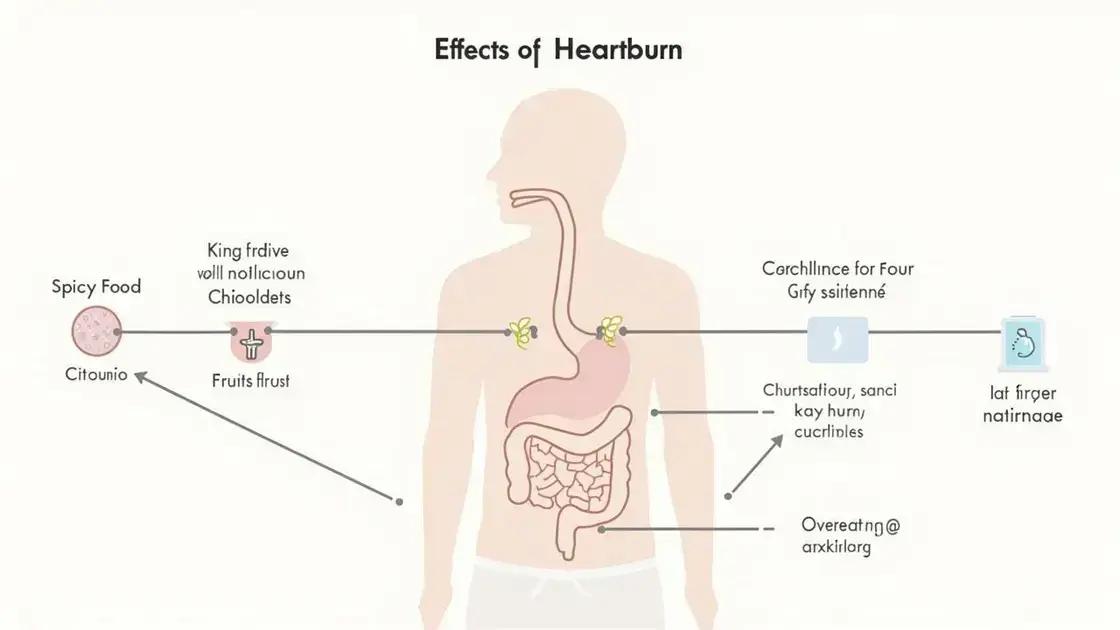
Heartburn is a common digestive issue that occurs when stomach acid flows back into the esophagus, causing a burning sensation in the chest. This condition, known as gastroesophageal reflux disease (GERD) when chronic, can be triggered by certain foods and behaviors that irritate the digestive system.
What Causes Heartburn?
Several factors can lead to heartburn. Some of the most common include:
- Weakened Lower Esophageal Sphincter: This muscle helps keep stomach contents where they belong. If it relaxes too much, acid can escape.
- Overeating: Eating large meals can increase stomach pressure and lead to reflux.
- Certain Foods: Some foods can trigger heartburn more than others, and it varies from person to person.
How to Recognize Triggers
Identifying your heartburn triggers is essential for avoiding discomfort. Keep a diary noting:
- What foods you eat
- When you experience heartburn symptoms
- Your overall eating habits
This can help you pinpoint specific foods or eating patterns that may cause issues.
Common Triggers of Heartburn
Some foods and drinks that are frequently linked to heartburn include:
- Spicy Foods: Foods with strong spices can irritate the stomach.
- Citrus Fruits: Lemons, oranges, and similar fruits can increase acidity.
- Chocolate: It can relax the lower esophageal sphincter.
- Fried or Fatty Foods: These can slow digestion, leading to heartburn.
- Caffeinated Beverages: Coffee and sodas can trigger reflux in some people.
Knowing these common triggers can significantly reduce the frequency of heartburn occurrences.
Common Trigger Foods to Avoid
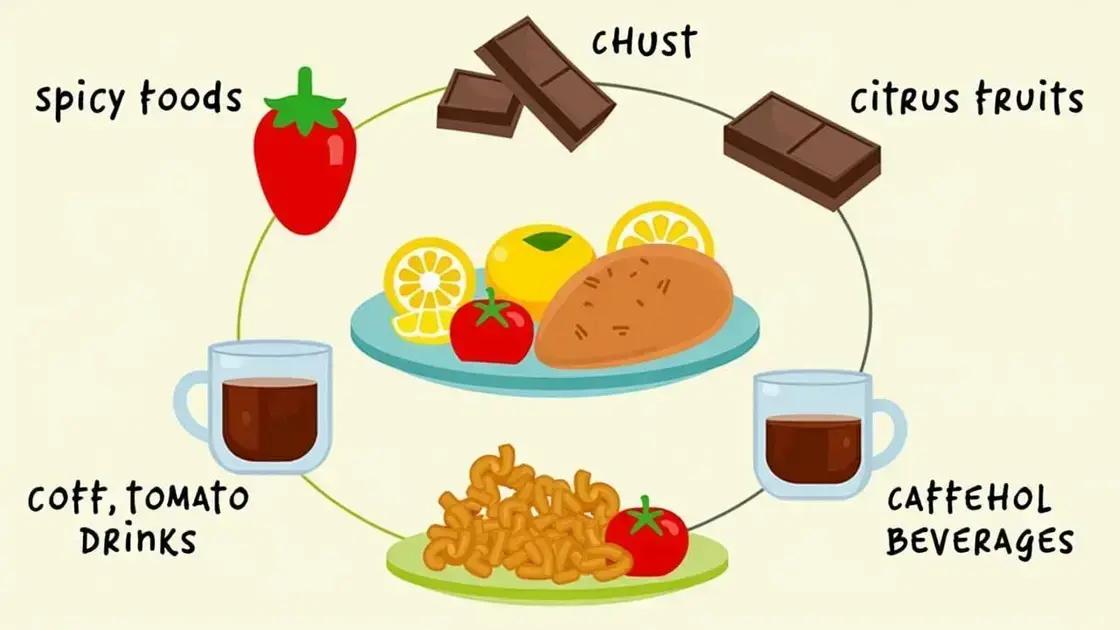
When managing heartburn, it is crucial to identify and avoid specific foods that may trigger symptoms. Here are some common trigger foods to watch out for:
1. Spicy Foods
Spices such as chili powder, pepper, and curry may add flavor, but they can lead to heartburn. These foods stimulate the stomach and can irritate the esophagus.
2. Citrus Fruits
Fruits such as oranges, lemons, and grapefruits are high in acidity. Although they are healthy, they can provoke heartburn in many individuals.
3. Chocolate
Chocolate contains caffeine and other substances that can relax the lower esophageal sphincter. This may make it easier for stomach acid to escape into the esophagus.
4. Fried and Fatty Foods
Foods that are deep-fried or rich in fats, like fried chicken, nachos, and cream sauces, can slow down digestion and contribute to feelings of heartburn.
5. Tomato Products
Tomatoes, including sauces and salsa, can significantly increase acidity in the stomach. People with heartburn may want to limit their intake of these items.
6. Caffeinated Beverages
Caffeine is found in coffee, tea, and some sodas. It relaxes the lower esophageal sphincter, potentially leading to heartburn.
7. Alcoholic Drinks
Alcohol can irritate the digestive system and is known to relax the sphincter muscle, allowing acid to enter the esophagus more easily.
By knowing these common trigger foods, you can make more informed choices and potentially reduce instances of heartburn.
Effective Strategies for Reducing Triggers
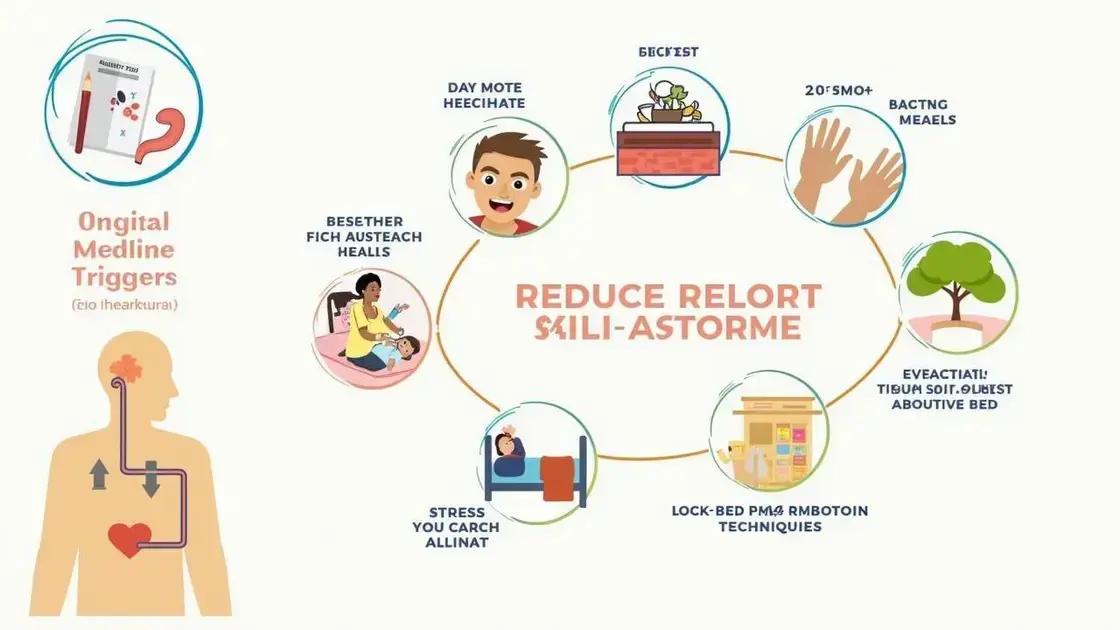
Reducing triggers for heartburn involves making simple changes to your habits and lifestyle. Here are some effective strategies to consider:
1. Keep a Food Diary
Track what you eat and note when heartburn occurs. This will help you identify your personal triggers and avoid them.
2. Eat Smaller, More Frequent Meals
Instead of three large meals, try eating smaller portions throughout the day. This can prevent your stomach from becoming too full and reduce pressure on the lower esophageal sphincter.
3. Avoid Eating Before Bedtime
Try to finish eating at least 2-3 hours before lying down or going to bed. This gives your stomach time to digest food and reduces the chance of acid reflux.
4. Stay Hydrated
Drinking water can help dilute stomach acid. However, avoid drinking large quantities during meals to prevent overfilling your stomach.
5. Elevate Your Head While Sleeping
Using extra pillows or an adjustable bed can help keep stomach acid from rising during sleep, reducing nighttime heartburn.
6. Limit Stress
Stress can increase stomach acid production. Practice relaxation techniques such as deep breathing, yoga, or meditation to reduce overall stress levels.
7. Choose Non-Citrus Fruits
If you enjoy fruit but find citrus causes heartburn, try other options like bananas or apples that are less likely to trigger symptoms.
Implementing these strategies can significantly help in reducing the frequency and severity of heartburn. By being mindful of your diet and habits, you can enjoy a more comfortable life.
Creating a Heartburn-Friendly Diet Plan
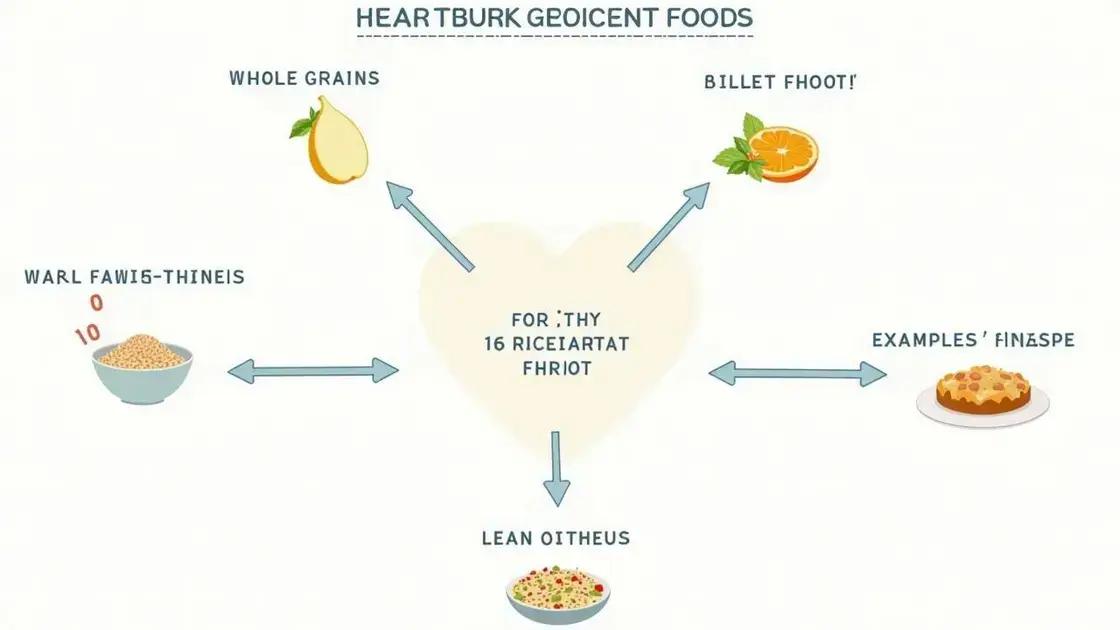
Creating a heartburn-friendly diet plan involves incorporating foods that can help soothe your stomach and avoiding those that can trigger discomfort. Here are some guidelines to help you design your meal plan:
1. Focus on Whole Foods
Choose whole, unprocessed foods such as:
- Vegetables: Leafy greens, broccoli, and carrots are excellent choices.
- Whole Grains: Opt for oatmeal, brown rice, and whole wheat bread.
- Lean Proteins: Skinless chicken, turkey, and fish can be heartburn-friendly options.
2. Include Non-Citrus Fruits
Add fruits that are less acidic, like:
- Bananas: A great snack that is gentle on the stomach.
- Melons: Watermelon and cantaloupe are hydrating and soothing.
- Apples and Pears: These fruits are generally easy on the digestive system.
3. Healthy Fats
Incorporate healthy fats such as:
- Avocados: Rich in nutrients and good fats.
- Nuts and Seeds: Almonds and chia seeds can provide healthy options.
4. Stay Hydrated
Drink plenty of water throughout the day, but avoid large amounts during meals. Herbal teas, like chamomile or ginger tea, can also be soothing.
5. Limit Trigger Foods
While creating your meal plan, try to avoid:
- Spicy foods
- Fried or fatty foods
- Chocolate
- Caffeinated and alcoholic beverages
6. Plan Balanced Meals
Make sure each meal contains a balance of carbohydrates, proteins, and healthy fats. Avoid large portions, as overeating can lead to heartburn.
7. Listen to Your Body
Everyone’s body reacts differently to food. Pay attention to how your meals affect your heartburn. Adjust your diet as needed to find what works best for you.
In Summary: Managing Heartburn through Diet
Understanding how to identify and reduce trigger foods for heartburn can significantly improve your quality of life. By recognizing common triggers and implementing effective strategies, you can create a heartburn-friendly diet plan that focuses on whole foods, non-citrus fruits, and healthy fats.
Keeping a food diary, managing portion sizes, and listening to your body’s reactions are essential steps in managing heartburn effectively. By being mindful of your eating habits and making informed choices, you can lead a more comfortable and enjoyable life.
With the right diet and strategies in place, you can take control of your heartburn and focus on living your best life.
FAQ – Frequently Asked Questions about Heartburn Management
What are trigger foods for heartburn?
Trigger foods for heartburn are items that can cause or worsen symptoms, such as spicy foods, citrus fruits, chocolates, and fried meals.
How can I identify my personal trigger foods?
Keeping a food diary can help you track what you eat and note when heartburn occurs, making it easier to identify triggers.
What strategies can I use to reduce heartburn triggers?
Eating smaller meals, avoiding late-night snacks, and managing stress are effective strategies for reducing heartburn triggers.
What foods should I include in a heartburn-friendly diet?
Focus on whole foods, non-citrus fruits, lean proteins, and healthy fats. Foods like oatmeal, bananas, and skinless chicken are good choices.
Is it necessary to avoid all trigger foods?
While it’s important to limit trigger foods, some may find they can tolerate small amounts of certain items. It’s essential to listen to your body.
How can I make my meals more heartburn-friendly?
Plan balanced meals that include a variety of food groups, avoid overeating, and consider how your meals affect your heartburn.

